Is okra safe for bearded dragons to eat?
Yes, okra is safe for bearded dragons to eat. It can be a nutritious addition to their diet as it contains vitamins, minerals, and fiber. However, it should be fed in moderation and properly prepared to ensure it is free from any pesticides or harmful substances.
Bearded dragons are fascinating reptiles that make popular pets, known for their unique appearance and docile nature. As reptile owners, it is crucial for us to understand the nutritional needs of our scaly friends and provide them with a diet that supports their overall health and well-being. One common question that arises when it comes to bearded dragon nutrition is whether or not they can eat okra. In this article, we will explore the facts and benefits of feeding okra to bearded dragons, along with some considerations and alternative food options.
Table of Contents
Can bearded dragons eat okra?
Can bearded dragons eat okra? Yes,it can. While bearded dragons are primarily insectivores, they can also consume certain vegetables as part of a balanced diet. Okra can be a healthy addition to their diet due to its nutritional content and health benefits. However, it should be fed in moderation and prepared properly to ensure the safety of your pet.
Natural diet and necessary nutrition for bearded dragon
To ensure the overall health of bearded dragons, it’s essential to provide them with a diverse range of foods. Juvenile bearded dragons have different nutritional needs compared to adults, and maintaining a healthy weight is crucial for their overall well-being. It’s important to feed adult bearded dragons a balanced diet to meet their nutritional requirements. Consulting a reptile vet can provide valuable advice on the specific nutrition needs of bearded dragons.
Vegetables for bearded dragon
When considering the diet of bearded dragons, it’s crucial to include a variety of nutritious vegetables. Mustard greens offer essential calcium and phosphorus, while collard greens provide vital vitamins A and K. Bok choy is also a great addition, offering valuable vegetable matter, and sweet potato provides both variety and nutrition for these omnivores. However, it’s important to note that Swiss chard should be fed in moderation due to its oxalate content. By incorporating these veggies into the diet, pet owners can ensure their bearded dragons receive the necessary nutrients for optimal health.
The Role of Okra in Bearded Dragon’s Diet
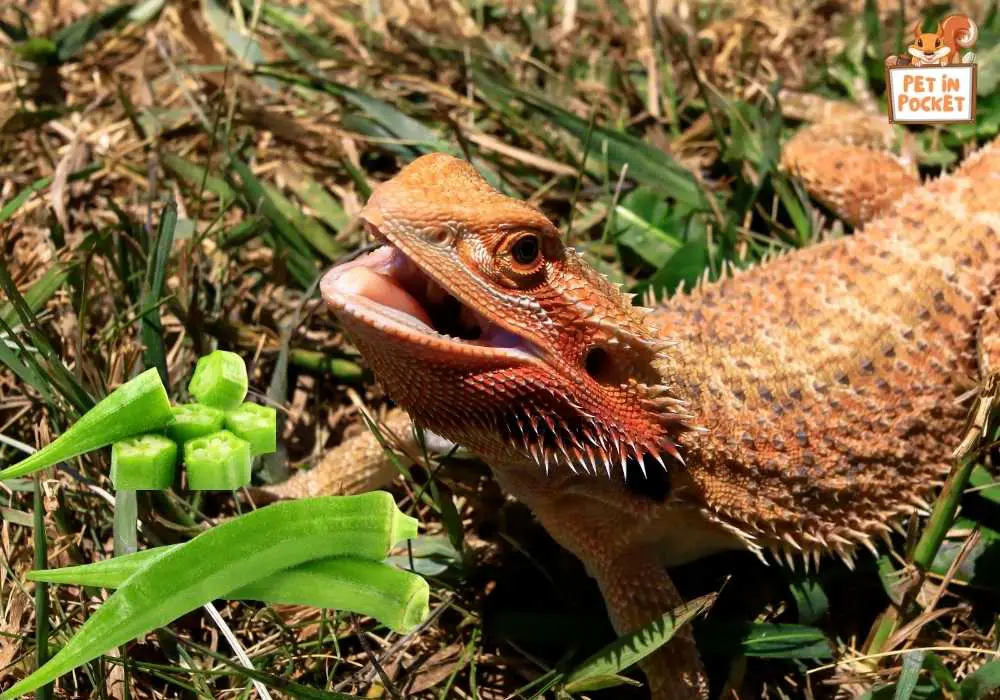
One cup (100g) of raw okra contains approximately 33 calories. It provides 1.93 grams of protein, 0.19 grams of fat, and 7.45 grams of carbohydrates. Okra is also a great source of dietary fiber, with 3.2 grams per cup. The sugar content is relatively low, at 1.48 grams. In terms of vitamins and minerals, okra is notable for its high vitamin K content, offering 31.3 µg per cup. It is also a good source of potassium (299 mg), sodium (7 mg), vitamin C (23 mg), magnesium (57 mg), calcium (82 mg), and phosphorus (61 mg).
Now, let’s dive into the specific role of okra in bearded dragons’ diet. Okra can be a valuable food source for bearded dragons, providing them with plant matter that is beneficial for their nutrition. Similar to other vegetables, okra offers vitamins, minerals, and fiber that can contribute to a healthy and balanced diet. However, it’s important to understand the nutritional content of okra and the potential health benefits it can have for bearded dragons.
Nutritional Content of Okra
Okra is packed with essential nutrients that can benefit bearded dragons. It is a good source of vitamins, including vitamin C, which plays a crucial role in their overall health. Additionally, okra contains minerals such as calcium, magnesium, and folate, which are essential for various bodily functions. Including okra in their diet provides bearded dragons with a variety of nutrients that support their nutrition and well-being.
Health Benefits of Okra for Bearded Dragons
Feeding okra to bearded dragons can have various health benefits. Okra aids in maintaining a healthy weight, which is crucial for bearded dragons’ overall well-being. It also supports their digestion, thanks to the mucilage present in okra. Furthermore, including okra in their diet contributes to a balanced nutrition and helps them obtain the necessary nutrients for optimal reptile health.
How to Feed Okra to Bearded Dragons?
Now that we know okra can be a beneficial food source for bearded dragons, let’s discuss how to properly feed okra to them. It is important to prepare okra in small, manageable pieces that bearded dragons can easily consume. Cutting the okra into small pieces facilitates their ability to eat it without any issues. Additionally, before offering okra to bearded dragons, it is crucial to ensure that it is clean and free of any harmful substances, such as pesticides, to ensure their safety.
Preparing Okra for Bearded Dragons
To prepare okra for bearded dragons, it’s essential to cut it into small, manageable pieces. This allows them to easily consume the vegetable matter. When feeding okra to bearded dragons, moderation is key. It should be offered as part of a varied diet, alongside other nutritious foods. Bearded dragons, both juvenile and adult, can benefit from having okra a few times a week, ensuring they receive a balanced nutrition for their healthy growth and development.
How often should I feed my bearded dragon Okra?
When it comes to feeding okra to bearded dragons, moderation is important. Juvenile bearded dragons, up to a few months of age, can be offered okra once or twice a week as part of their diet. Adult bearded dragons require a nutritionally balanced diet, including a variety of foods, so offering okra a few times a week is suitable for them as well. It’s crucial to regulate the frequency of okra intake for bearded dragons‘ overall health and nutrition.
Risks and Considerations of Feeding Okra
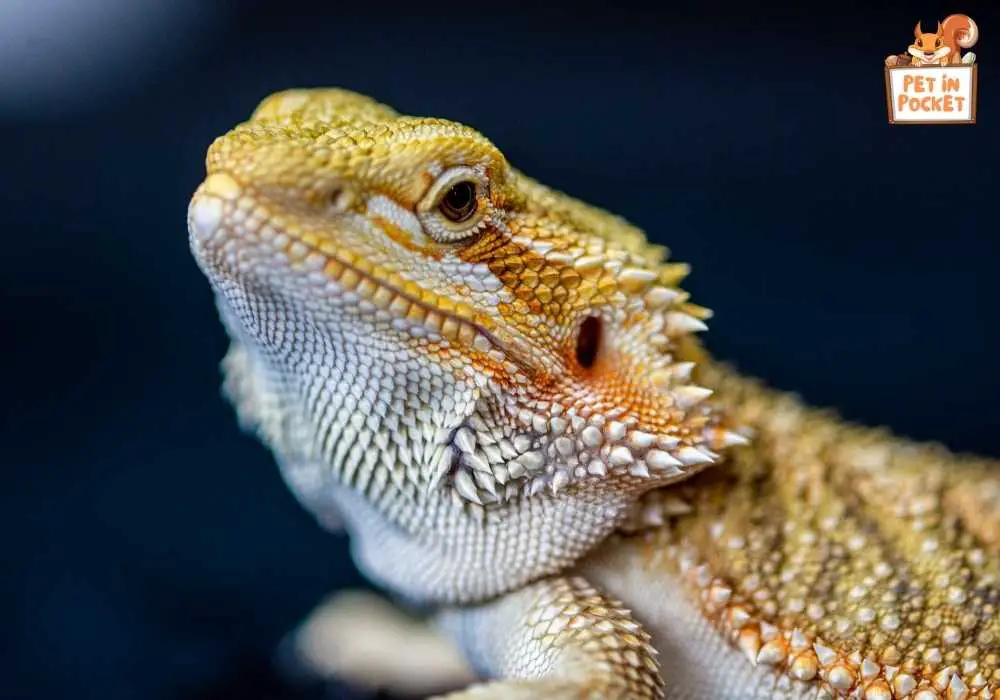
While okra can be a healthy addition to the diet of bearded dragons, it’s important to be aware of any potential risks and considerations. The nutritional balance of bearded dragons’ diet is essential, and overfeeding okra can lead to potential health issues. Okra contains phosphorus, which should be balanced with calcium in their diet. Additionally, okra, like some vegetables, contains oxalates, and excessive oxalates consumption can affect calcium absorption. Monitoring the intake of okra is important to avoid any potential risks.
Potential Risks with Feeding Okra
Overfeeding bearded dragons with okra can lead to possible digestive problems, and an imbalanced nutrition intake. It’s important to be mindful of the potential risks associated with overfeeding okra to bearded dragons. Implementing moderation is crucial to prevent any potential health concerns, allowing bearded dragons to maintain a healthy diet and minimizing the risk of nutrition-related issues. Regularly monitoring okra intake and observing any signs of overfeeding can help ensure the overall well-being of bearded dragons.
Signs of Overfeeding Okra to Bearded Dragons
If bearded dragons are overfed okra, they may exhibit signs of digestive distress, such as diarrhea or constipation. Additionally, overconsumption of okra may lead to changes in behavior, including lethargy or a decreased appetite. These signs can indicate an imbalance in their diet or potential health issues. Monitoring bearded dragons for any adverse reactions to overfeeding them with okra, such as changes in digestion or weight, is important to address any issues promptly and adjust their diet accordingly.
Other Food Alternatives for Bearded Dragons
While okra can be a nutritious addition to the diet of bearded dragons, it’s essential to offer them a variety of foods for optimal nutrition. Incorporating different types of food, both plant-based and animal-based, supports a balanced diet for bearded dragons. Some plant material alternatives include mustard greens, collard greens, beet greens, bell peppers, and green beans. Animal-based protein alternatives include king worms, mealworms, crickets, and cockroaches. Providing a varied diet ensures bearded dragons receive a wide range of essential nutrients.
Plant Material Alternatives for Bearded Dragons
Animal-Based Protein Alternatives for Bearded Dragons
Do Bearded Dragons Need Supplements?
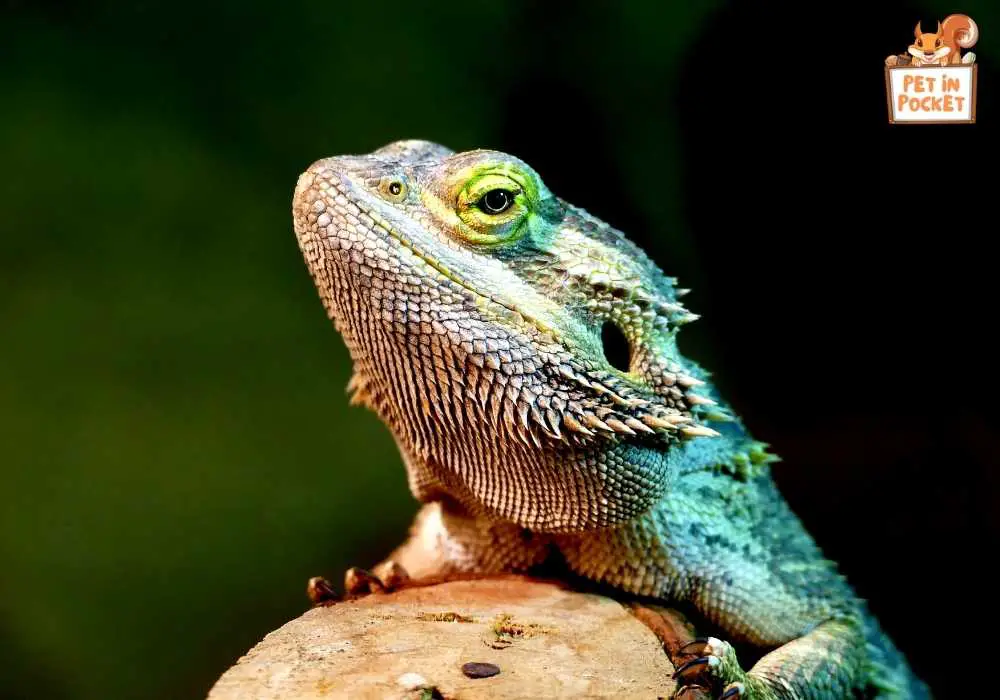
Supplementation can be beneficial for bearded dragons to ensure they receive all the necessary vitamins and minerals. Calcium gluconate supplement plays a crucial role in their overall health, as calcium is essential for their bone and muscle development. Additionally, vitamin D3 supplement helps prevent metabolic bone disease in bearded dragons. Multivitamin supplements support their overall nutrition, while phosphorus supplement can be necessary for special cases. It’s important to consult with a reptile veterinarian to determine the appropriate supplements for bearded dragons.
Importance of Vitamins and Minerals for Bearded Dragons
Vitamins and minerals play a vital role in supporting the overall health of bearded dragons. Vitamin C, calcium, phosphorus, and other essential nutrients are necessary for their growth, development, and overall well-being. Adequate vitamin C supports their immune system, calcium is crucial for bone health, and phosphorus balances calcium for optimal absorption. Regular visits to a reptile veterinarian can provide valuable guidance on the importance of specific vitamins and minerals for the nutrition of bearded dragons.
Can Okra Replace the Need for Supplements in a Bearded Dragon’s Diet?
While okra is a nutritious food source for bearded dragons, it cannot replace the need for supplements in their diet. Supplements, such as calcium gluconate and vitamin D3, provide specific nutrients that okra alone may not be able to fulfill. Okra can be a valuable addition to their diet, contributing to their nutrition, but it should be offered as part of a well-balanced diet, alongside appropriate supplementation. It’s important to consult with a veterinarian to determine the right balance of food and supplements for bearded dragons.
FAQ
Can Bearded Dragons eat raw okra?
Yes, Bearded Dragons can eat raw okra. It is best to wash the okra thoroughly and remove any pesticides before offering it to your pet.
How should I prepare okra for my Bearded Dragon?
You can chop the okra into small pieces or thin slices to make it easier for your Bearded Dragon to eat. Some owners also prefer to lightly steam or blanch the okra to soften it before feeding.
Is it safe to feed Bearded Dragons okra seeds?
It is generally recommended to remove the seeds before offering okra to your Bearded Dragon. The seeds are harder to digest and may pose a choking hazard.
Can okra be a staple food for Bearded Dragons?
While okra can be included as part of a varied diet, it should not be the primary staple food for Bearded Dragons. They require a balanced diet consisting of insects, leafy greens, and occasional fruits.
Are there any risks or considerations when feeding okra to Bearded Dragons?
Okra is relatively safe for Bearded Dragons, but like any new food, it’s important to introduce it gradually and monitor your pet for any signs of digestive upset or allergies.
Conclusion
To conclude, while okra can be a part of a bearded dragon’s diet, it should not be the sole source of nutrition. Bearded dragons require a varied and balanced diet to thrive. Okra provides some beneficial nutrients, including vitamins and minerals, but it should be supplemented with other vegetables and protein sources. It is important to prepare okra properly and feed it in moderation to avoid any potential risks or overfeeding. Additionally, bearded dragons may still require essential supplements to meet their nutritional needs adequately. Consult with a reptile veterinarian or expert for specific dietary recommendations for your bearded dragon. Remember to prioritize your pet’s health and well-being by providing a diverse and nutritious diet.

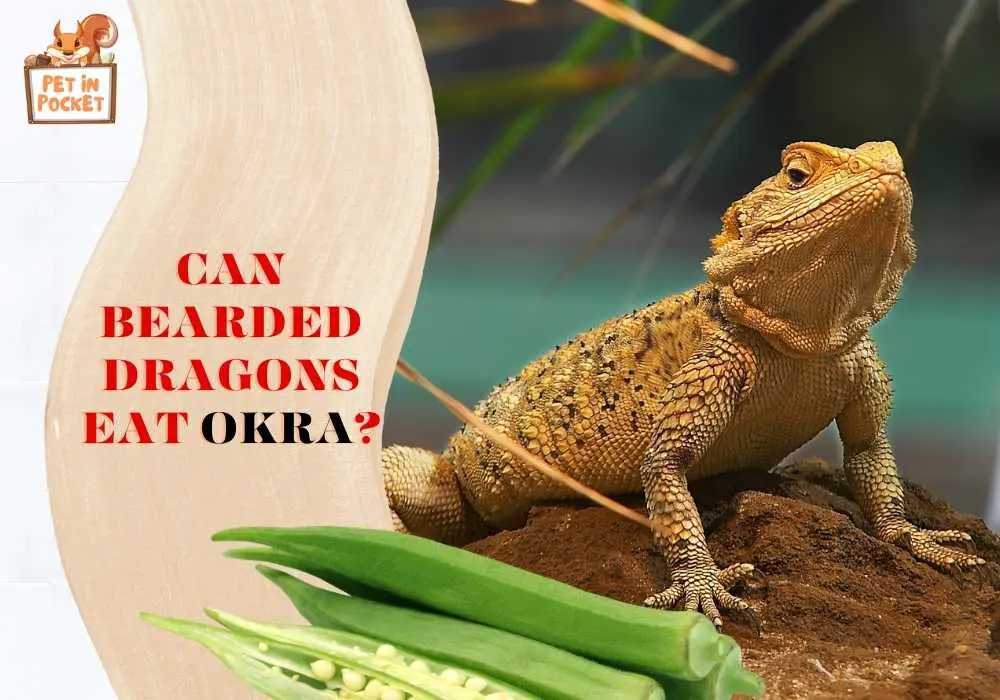



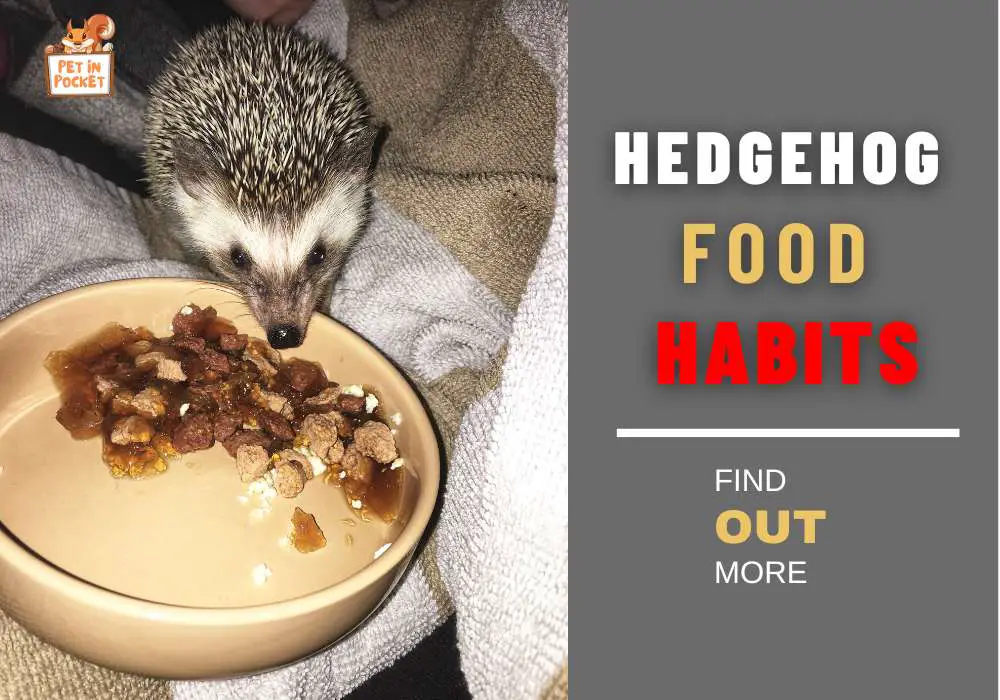
Leave a Reply